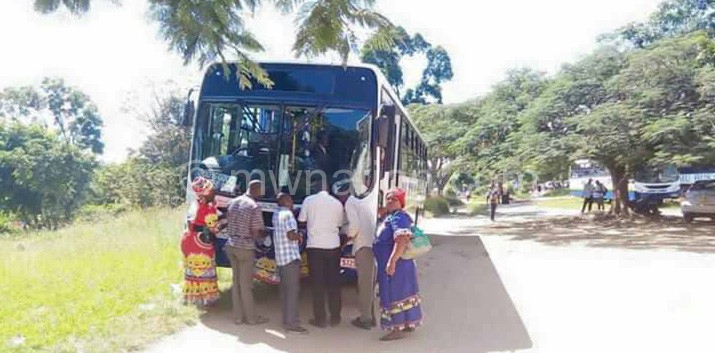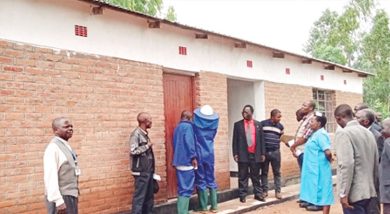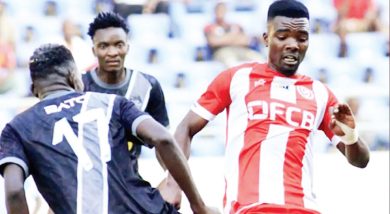Conventions delay will hurt parties
Delays by the country’s major political parties to hold conventions ahead of the May 2019 Tripartite Elections will hurt them, political analysts have warned.
The analysts expressed the sentiments in separate interviews with Weekend Nation in the wake of the delay by all major political parties—Malawi Congress Party, (MCP), Democratic Progressive Party (DPP), United Democratic Front (UDF) and People’s Party (PP)—to hold elective conferences to elect presidential candidates, other office bearers and map out their electoral calendars.

By end April 2013, in the run up to the 2014 Tripartite Elections, all the four political parties—which have previously formed government—had already held their conventions, among others, to elect presidential candidates and other office holders.
In the run up to the 2014 elections, PP held its convention on August 27 2012—20 months before the polling date. They were followed by the UDF, who went to convention on October 31 2012—18 months before the polls.
DPP held its indaba on April 18 2013—months towards the elections while MCP had its elective conference on August 9 2013, eight months before the polls.
While MCP is currently holding its convention, amid controvery, in a telephone interview on Thursday, DPP spokesperson Francis Kasaila refused to be drawn on when the party will hold its convention

There are two factions in DPP—one wants President Peter Mutharika to be the torch-bearer in the 2019 elections, while the other wants Vice-President Saulos Chilima to lead the party. While Mutharika has declared that he will stand as a presidential candidate, Chilima is yet to state his position.
Said Kasaila: “When we are ready for the convention, we will inform the public. But what you should know is that the conference will take place. The time factor is not a concern because we have always been preparing for the elections. A convention is, therefore, just a constitutional requirement; otherwise, the mandate of office bearers elected at the last conference is still intact.”
PP and UDF would also not give a picture as to when they would hold their conventions.
PP spokesperson Noah Chimpeni—whose party leader Joyce Banda returned last week after a four-year self-imposed exile—gave a similar response when contacted by telephone on Thursday.
“At this stage, we cannot state when exactly we will go for a convention. Our president has just returned and we are yet to sit down at the party leadership level to chart the way forward,” he said.
UDF spokesperson Ken Ndanga, in a telephone interview on Thursday, said the party would hold its convention on August 1 in Blantyre.
On the other hand, the main opposition MCP which was scheduled to hold its convention in April is holding the convention this weekend in Lilongwe.
Following court battles, MCP this week reinstated its embattled secretary general Gustave Kaliwo, alongside the party’s vice-president Richard Msowoya and three other senior members.
In an e-mail response, Centre for Multiparty Democracy (CMD) executive director Kizito Tenthani on Wednesday said holding elective conferences earlier would help the parties to sort out their mess.
He said: “If party presidential candidature at national elections is a contention within a political party, it would do the party a lot of good if they hold their elective conferences early and sort out their leadership issues.”
Tenthani said parties have to be bold to take that step so that if there are fallouts after the conventions, they should have ample time to do damage control, so that they can focus on the national elections as a united force. Sorting out their leadership challenges too close to the elections may leave the parties without enough time to rebuild their structures, consolidate and focus on the elections.
He added that party conventions were a necessity as they offered a platform for office bearers to account to members and accord them an opportunity to ratify party decisions.
Head of political and administrative studies at Chancellor College Happy Kayuni on Wednesday also warned that holding conventions too close to elections may have a direct impact on the whole electoral process.
He said on Wednesday: “One of the roles of political parties is to provide civic education as well as sell their policy proposals to the electorate. But they have to first of all clear their position and leadership through the convention; otherwise, it will just be incoherent rumbling.”
Another political commentator Henry Chingaipe, in a telephone interview on Wednesday, said the political processes within the parties stood to suffer.
“These delays will reduce the amount of time the parties and their presidential candidates will have to sell their agenda. It takes time for people to know a candidate and what he or she is standing for.
“Delaying the conventions also means that parties will not have enough time to conduct primaries. The result is that they will resort to short-cuts, thereby deny people their democratic rights to choose people they want to represent them,” he said.
Chancellor College-based political analyst Mustafa Hussein said the major demerit of the current scenario in parties is that the delays will hurt the parties themselves because they will have less time to sell their agenda.




